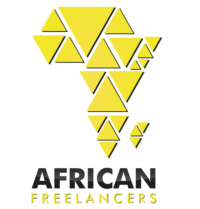So, you’re tired of the 9-to-5 grind and ready to be your own boss. But now comes the million-dollar question: Should you ride solo as a freelancer or build an empire with an agency Freelancing is like being a one-person band. You set the rhythm, play all the instruments, and keep 100% of the tips. On the flip side, running an agency is like conducting an orchestra. You have a team, a bigger audience, and (hopefully) a standing ovation at the end of every project. The big question remains; freelance vs agency: what is the right business model?
But here’s the thing. Choosing the right business model isn’t just about what sounds cooler. It’s about sustainability, income potential, workload, and, let’s be real, how much chaos you’re willing to handle.
In this article, we’ll break down the pros and cons of freelancing versus running an agency, key factors to consider before taking the leap, and how to transition if you decide to scale up. Let’s dive in!
Freelance vs Agency: Understanding the Two Business Models
What is Freelancing?
Freelancing is a business model where an individual works independently, offering specialized services to clients without being tied to a single employer. Freelancers set their rates, choose their projects, and manage their schedules, giving them complete control over their work.
How Freelancers Operate
- Work directly with clients on a per-project or retainer basis.
- Handle all aspects of the business, including marketing, client management, and finances.
- Enjoy flexibility in work hours and project selection.

Pros of Freelancing
- Full control over workload and schedule.
- Higher earning potential per project compared to salaried jobs.
- Ability to work from anywhere.
Cons of Freelancing
- Inconsistent income and client flow.
- No built-in support system; everything falls on one person.
- Limited capacity for scaling beyond personal availability.
What is an Agency?
An agency is a structured business entity that provides services through a team rather than a single individual. Agencies often take on larger projects and serve multiple clients at once by delegating tasks among employees or contractors.
How Agencies Operate
- Work with multiple clients, often on long-term contracts.
- Assign tasks to a team, ensuring specialization and efficiency.
- Follow structured processes for project management, client communication, and service delivery.
Pros of Running an Agency
- Increased earning potential through scalability.
- Ability to take on larger, higher-paying clients.
- More stability due to multiple revenue streams.

Cons of Running an Agency
- Higher operational costs and administrative responsibilities.
- More complex management due to employees or contractors.
- Requires strong leadership and business skills to succeed.
Freelance vs Agency: Key Factors to Consider
Income and Revenue Potential
One of the biggest differences between freelancing and running an agency is how money is made. Freelancers earn by charging per project, per hour, or on a retainer basis. Their income is directly tied to the amount of work they can personally handle. On the other hand, agencies generate revenue by taking on multiple clients simultaneously. They can scale earnings by hiring employees or subcontractors to handle additional work.
Freelancers often hit an income ceiling since they trade time for money, while agencies can increase revenue without necessarily increasing personal workload.
Workload and Responsibility
The daily workload differs significantly between a freelancer and an agency owner. Freelancers juggle everything from client communication to project execution and invoicing. They have full autonomy but also bear all the pressure. However, agency owners delegate tasks and manage a team, allowing them to take on more projects. However, they also handle administrative responsibilities, employee management, and business operations.
Handling projects solo can be overwhelming, but managing a team comes with its own set of challenges, such as hiring, training, and ensuring quality control.
Client Management and Growth
Freelancers build direct relationships with clients, offering a personal touch. This can lead to strong, long-term partnerships but also means dealing with client demands alone. Agencies, on the other hand, rely on structured communication systems. They assign dedicated account managers or teams to handle different clients, allowing for a more organized approach.
Both models require solid client retention strategies, but agencies often have the advantage of diversifying their client base, reducing the risk of income loss if one client leaves.
Skillset and Expertise
Freelancers depend solely on their skills. While they can become highly specialized, their service offerings may be limited by their expertise. On the other hand, agencies benefit from a diverse talent pool. By hiring specialists in different areas, they can provide a broader range of services and handle more complex projects.
This difference makes agencies more attractive to large clients looking for a full-service solution rather than working with multiple individual freelancers.
Scalability and Business Growth
Freelancing can be scaled to an extent by increasing rates, taking on higher-paying clients, or outsourcing small tasks. However, there is a limit to how much one person can do. Agencies have a higher growth potential. They can expand by hiring more employees, offering additional services, and taking on bigger projects.
Freelance vs Agency: Who Should Choose What?
Freelancing: Best for Independent Professionals
Freelancing is ideal for individuals who value flexibility, independence, and direct control over their work. If you prefer working alone, setting your schedule, and having minimal overhead costs, freelancing may be the better choice. It’s also a good fit for those who want to specialize in a niche skill and build a personal brand without the complexities of managing a team.
However, freelancers must be comfortable with irregular income, self-marketing, and handling all aspects of their business, from client acquisition to project execution.
Agency: Best for Those Who Want to Build a Team and Scale
Running an agency is the right choice for individuals who enjoy delegation, leadership, and business development. If you have a vision of scaling beyond yourself and want to serve multiple clients at once, an agency model provides the structure for growth.
This path is best for those willing to invest in hiring, operations, and client management. While agencies can generate more revenue, they also come with added responsibilities, including payroll, contracts, and quality control.
Making the Right Decision
Choosing between freelancing and running an agency depends on your personal goals, risk tolerance, and financial ambition.
- If you prioritize flexibility, creative freedom, and a lean business model, freelancing is a solid choice.
- If you’re willing to take on more responsibility for long-term scalability and higher revenue potential, an agency may be the better path.
Ultimately, there is no one-size-fits-all answer. The key is to align your choice with your skills, aspirations, and willingness to manage risk.
If you found this article helpful, check out more insightful content on the African Freelancer blog. We cover everything from pricing strategies to client management tips tailored for African freelancers.
Want to connect with like-minded professionals? Join the African Freelancers community, where you can network, share experiences, and learn from others navigating the freelancing and agency world. Let’s grow together!






